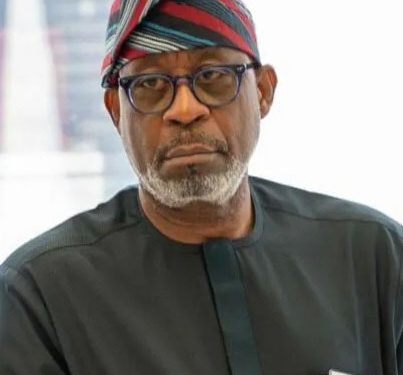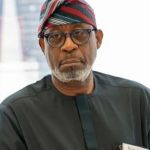Nigeria’s Minister of Solid Minerals Development and Chairman of the African Minerals Strategy Group (AMSG) has called for a unified continental strategy to transform Africa from a supplier of raw minerals into a global powerhouse for mineral processing, innovation, and green industrialisation.
Speaking at the African Mining Week in Cape Town, themed “Vision & Strategy – Setting the Stage for Minerals Industrialization,” he stressed that Africa’s vast mineral wealth must no longer fuel industrialisation in other continents while African economies remain underdeveloped.
“Africa’s minerals have powered industrialization elsewhere while our own economies remain under-industrialized. This paradox must end. Our vision must be clear: to move from extractive dependence to transformative industrialization,” he said, urging African nations to build industries that process and add value to their mineral resources locally.
He emphasised that Africa’s minerals, critical for clean energy, digital technologies, advanced manufacturing, and global security should drive the continent’s own industrial growth. “Our youth should no longer seek jobs abroad while opportunities lie buried beneath their feet. The time to industrialize is now,” he added.
Highlighting Nigeria’s ongoing mining reforms, he noted that the country is promoting local beneficiation, from gold refining to lithium processing, while revoking dormant licenses to attract credible investors. Nigeria is also strengthening transparency and governance in the sector and developing a National Critical Minerals Strategy as part of its industrial growth agenda.
At the ministerial roundtable of the African Minerals Strategy Group held alongside the event, he reiterated Nigeria’s commitment to building a $1 trillion economy by 2030 through value addition and strategic mineral development. “We are digitizing mining processes, ensuring data accessibility and mineral traceability, and reforming our laws to attract investments,” he said, adding that all minerals in Nigeria will be traceable to either licensed operators or formalized artisanal and small-scale miners.
He joined other African leaders, including those from the Democratic Republic of Congo, in urging countries to prioritise comprehensive mineral mapping to understand the scale and distribution of their resources. He stressed that only licensed operators should be allowed to mine and called for stronger institutional capacity for supervision and regulation.
During Nigeria’s country spotlight session, officials presented new investment opportunities, policy incentives, and highlights of the nation’s mineral endowments to global investors.
The African Mining Week brought together ministers from DRC, Zimbabwe, and Sierra Leone, as well as representatives from Nigeria, Gambia, and Ghana, alongside key private sector players, to chart a new path for Africa’s mineral-led development.










